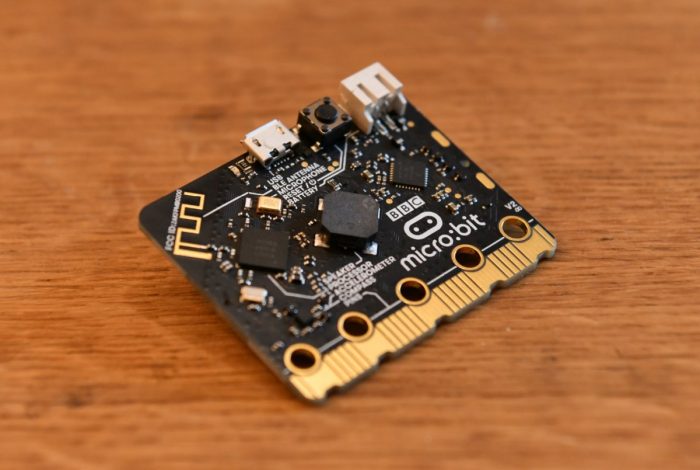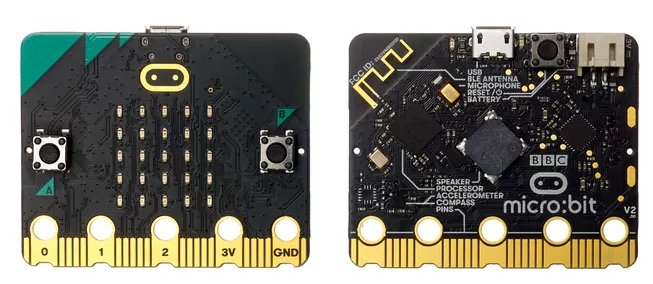
In 2016, BBC microcomputers, designed for schoolchildren and students, went on sale. They are positioned as learning systems, on the basis of which you can develop projects with Touch Develop, Python, and C ++, etc.
The project is not new, the first micro: bit appeared back in the 80s of the last century, and we wrote about it in a selection of PCs that had a strong impact on the IT industry. Well, now there is a new generation of BBC single-board devices that are even more functional than before.
Like the previous generation, this mini PC lacks video output and requires special software.
But this board offers its user Bluetooth, various sensors, LEDs and other accessories. Users beginning their journey in electronics development and programming will be able to create and test applications using this single board.

By the way, this generation has a speaker and microphone. In addition, the Nordic nRF51822 ARM Cortex-M0 processor has been replaced with an nRF52833 Arm Cortex-M4. The frequency has been increased from 16 MHz to 64 MHz.
Single board characteristics:
- Bluetooth 5.1.
- 25 LED (layout on the board - 5 * 5).
- 2 x tactile programmable buttons and 1 tactile system button.
- Compass.
- Magnetometer.
- Accelerometer.
- Temperature sensor.
- GPIO.
- micro USB 2.0 port.
The complete device specification is available here .

Students can program in Python (microcontroller versions, MicroPython), C / C ++ and MakeCode. One of the cases is the development of voice-activated systems. This example was suggested by the creators of the device themselves.
Another great news is that this SBC is fully compatible with the previous version, so the apps built for it will work here too.
The single-board will be on sale in November this year .
